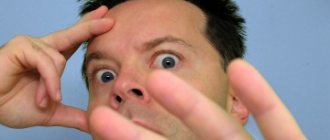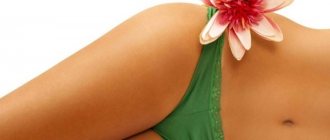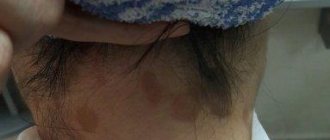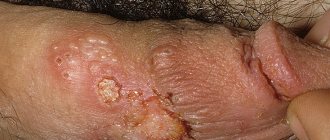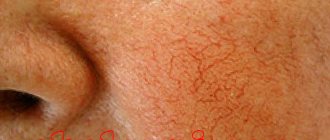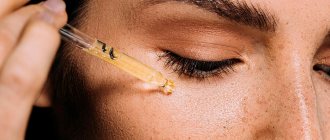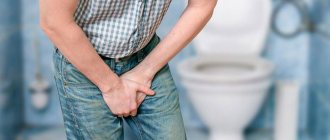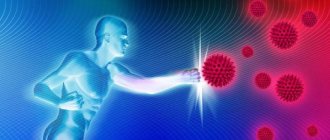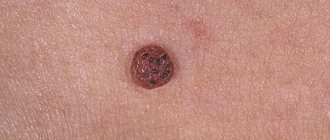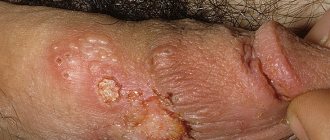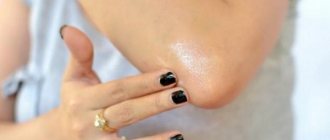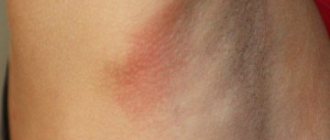Sometimes a woman may begin to be bothered by unbearable itching in the area of the nipples and areolas of the mammary glands. Most often, there is no reason to worry - itchy sensations can be caused by wearing synthetic underwear or be an allergic reaction to poor nutrition.
But if itching and burning in the nipple area are accompanied by other alarming signs, such as discharge from the mammary gland and pain, contact a mammologist immediately. Perhaps some kind of infection or pathology has begun to develop in the body.
Let's find out all the answer options to the question, why do nipples itch?
Everyday causes of itching
If your nipple itches, but there is no deterioration in your general condition, the reason may be due to external irritating factors. In this case, a doctor’s intervention is not required; it is enough to simply identify the specific cause and eliminate it.
- Skin irritation. Itchy nipples can often occur due to underwear that is too tight, uncomfortable or of poor quality. Irritation can also occur if a girl constantly wears lace underwear, which rubs her delicate skin, especially during sports.
- Dry skin. Simple lack of hydration can cause itchy nipples. Pay attention to the condition of the skin. If your nipples are peeling, you need to lubricate them with cream or moisturizing oil.
- Piercing. If recently pierced nipples are very itchy, it is possible that healing is not going well and the wound has become infected. This itching occurs as a result of unprofessional work by the technician or insufficient care of the puncture.
- Sunburn. If your nipples itch after being topless in the sun for a long time, the cause may be a burn. In this case, after some time, the girl may develop peeling on her papilla.
When is it necessary to consult a doctor?
If a girl experiences itching and it turns out that this is not an allergic reaction, she will consult a doctor.
You need to go to the doctor if your nipples:
- The skin has become different shades or one breast is larger than the other.
- They are not located symmetrically. Seals can be felt.
- The woman's health is deteriorating.
- They became different shapes and discharge appeared.
Conclusion
If signs appear, you should quickly consult a doctor. If a woman does not delay her visit to the mammologist, then there is a chance of preventing it from getting worse and being completely cured.
It is strictly not recommended to self-medicate and prescribe medications on your own. The diagnosis is made by an experienced doctor, who will also select the appropriate treatment.
Itchy nipples associated with hormonal processes in the body
The hormonal system plays one of the determining roles in the functioning of the body. Therefore, if your breast nipples itch, the reason may lie in a hormonal malfunction, which can occur at various stages of a woman’s life.
Adolescence
In this case, itching of the nipple area may be accompanied by pain in the mammary glands. The breast hurts because it is growing, but the pain should not be severe, and it goes away over time.
During puberty, the nipple area may also swell; this symptom is also associated with hormonal changes in the body.
Before your period
If your nipples on your chest itch, this may be one of the symptoms of PMS. Itching appears shortly before menstruation and goes away without external intervention in a few days. This condition, caused by hormonal changes, is completely normal and does not require special treatment.
During pregnancy
When pregnant women have itchy nipples, the cause is the deformation of the breast and its preparation for feeding the baby. During pregnancy, halos increase in size under the influence of the hormone prolactin, and their color may also change.
Nipples itch during pregnancy because nerve cells do not have time to grow at the required speed, so the nervous tissue is under constant tension, which in turn causes skin irritation.
Menopause and hormonal disorders
During menopause, a sharp decline in estrogen occurs in the body of many women. This leads to dryness and often itching.
Also, women have itchy nipples due to diseases of the endocrine system, which is responsible for the correct functioning of hormones (diseases of the thyroid gland, adrenal glands, pancreas, etc.).
How to get rid of the problem?
Itching itself is not a disease, but only a symptom. Therefore, you should first determine the cause of the itching. Often no treatment is required, it is enough to simply eliminate its cause.
If irritation is caused by an incorrectly selected bra, it is enough to replace it with a suitable size made from natural fabric. If itching is caused by cosmetics or detergents, then it is worth choosing hypoallergenic analogues.
If your skin is prone to dryness, you should use moisturizers, especially after showering. Chamomile decoction also has a beneficial effect on the skin of the breasts and nipples; it is enough to wipe the bust with this remedy once a day.
It is easy to get rid of nervous itching with the help of sedatives, and antihistamines will help relieve allergic manifestations. But don’t rush to self-medicate.
All medications should be taken under the supervision of a physician, especially for pregnant, lactating women and women with any chronic diseases.
Itching in the nipples due to various diseases
Itching can be caused by health problems. If one nipple itches, it may be due to skin diseases or an allergic reaction. Both halos can itch due to hormonal changes and illness.
- Eczema. This disease most often occurs during breastfeeding in an infant. In this case, itching in the nipple area is accompanied by peeling and crusts. Eczema is difficult to diagnose and is often confused with thrush or cancer, and incorrect treatment is prescribed, which only makes the problem worse.
- Fungal infection (thrush) during breastfeeding. This is one of the most common reasons why the nipple itches during breastfeeding. The nipples may be very itchy and swollen. With this disease, halos become bright pink, moist, and may become covered with small blisters.
- Atopic dermatitis (urticaria). If your nipple itches and the itching is accompanied by a rash and inflammation, the problem may be atopic dermatitis caused by allergies. Contact a dermatologist or allergist to identify the allergen.
- Mastitis. Most often it also occurs during breastfeeding due to incomplete emptying. The nipples and breasts itch due to the appearance of cracks into which infection penetrates. In addition, the temperature rises to 39, and the chest may begin to ache and burn. These symptoms indicate the transition of the disease to the purulent stage.
- Paget's disease (cancer). Usually affects only one breast. For example, if the right nipple itches and scales appear on it, you need to pay close attention to this; perhaps this is a manifestation of Paget's disease on the right breast. At a later stage, tingling appears, sensitivity increases, burning, pain and discharge.
- Psoriasis. An infectious disease that is a common cause of sore and itchy nipples. In this case, moisturizing oils and creams do not help, and you should contact a dermatologist who will prescribe suitable medications.
- Tumors. Benign or malignant neoplasms can cause itchy halos. For example, if only the left nipple itches, pay attention to the left breast and check for lumps. Initial symptoms may resemble eczema, but if you experience pain in the entire breast, not just the nipple, you should immediately consult a doctor.
- Chest injury or surgery. It is common for nipples to itch after breast augmentation, reduction or breast lift surgery. This is due to tissue activity during scar regeneration and healing.
Diseases
Some diseases can also cause itchy nipples in women.
Dermatitis, eczema
Disturbances in the functioning of the endocrine or nervous system can lead to various skin diseases, which are accompanied by hyperemia, swelling, rashes and itching.
Infections
Various inflammatory, parasitic and infectious diseases, such as scabies, urticaria, thrush, psoriasis, acne and a number of others are often accompanied by itching and inflammation.
Mammary cancer
With breast cancer, upon palpation, a lump is detected in the breast, skin changes (orange peel) are possible, the nipples are retracted and very itchy, and sometimes bloody discharge is observed.
Paget's cancer
The first signs of this disease, as a rule, do not cause alarm. Paget's cancer initially manifests itself as mild redness, mild irritation and peeling of the skin of the nipple and areola. These symptoms may disappear without any treatment, but then appear in a more severe form - the nipple is very itchy, there is retraction and serous discharge.
Why do nipples itch - itching in men
As a rule, men have itchy nipples due to two diseases:
- Gynecomastia manifests itself in adolescence and much less frequently in older men. In addition to the itching, the guy’s breasts begin to grow and there will be severe pain in them.
- Male breast cancer - itchy tissue is accompanied by the appearance of ulcers and bloody discharge. If left untreated, the wounds may become infected, and the disease will be complicated by eczema.
Hormonal disorders
Testicles, pituitary gland and adrenal glands, the activity of which is directly or indirectly related to the production of sex hormones. If their work fails, then various diseases may develop. As a result, the hormonal balance is disrupted. Testosterone decreases its percentage. Meanwhile, estrogen, known as the female sex hormone, increases. The first bell notifying that just such a process has begun is peeling and itching of the guy’s nipples. Further, the hormonal imbalance will manifest itself more clearly, for example, the process of feminization may begin.
When should you see a doctor if you have itchy nipples?
When there are no other symptoms when itching occurs (change in color of halos, swelling, peeling, ulcers), it is necessary to exclude possible causes of its occurrence.
What to do:
- Change the powder and rinse aid you use to wash your clothes.
- You should avoid synthetic underwear , which causes irritation.
- If possible, stop taking medications ; they may cause an allergic reaction.
- Change your hygiene products and skincare products - they can also cause atopic dermatitis.
If the above tips do not help, you should not use traditional methods, it is better to consult a doctor immediately.
Prevention Tips
During lactation, to reduce discomfort and prevent the appearance of cracks and irritation of the nipples of the mammary glands, it is necessary to use special creams and ointments. It is recommended to consult a doctor before use and choose drugs that will be safe for the baby.
The consequences of increased sweating and poor hygiene are manifested by the formation of diaper rash and itching of the nipple area. For prevention, it is recommended to wash the breasts with chamomile decoction, warm water and baby soap. After the procedure, it is advisable to apply a moisturizer or baby cream.
If the nipples of the mammary glands itch for several days in a row, and an allergic reaction is excluded, you should consult a doctor. The presence of additional symptoms such as breast enlargement, the appearance of lumps, pain, changes in the color and shape of the nipples is a serious reason for a thorough examination in the clinic.
Itchy nipples - treatment
Treatment for itching depends entirely on its cause, which must be determined by a qualified professional.
We do not recommend self-medication if you develop itchy sensations in the area of the breast halos, since if you try to diagnose yourself and do not receive the correct treatment, you may miss breast cancer
What the doctor can prescribe:
- When treating thrush - Pimafucin, Candida solution or Bepanten;
- Atopic dermatitis (allergy) – antihistamines + avoidance of contact with the allergen;
- Eczema, psoriasis – anti-inflammatory, healing drugs;
- PMS and pregnancy do not require treatment;
- Dry skin – proper nutrition + moisturizing creams and oils;
- Itching after childbirth - rinse with chamomile solution.
What to do if your breasts are very itchy
If breast itching becomes unbearable, but there is no way to visit a doctor, you can relieve the condition using several methods.
- Apply a thin layer of glucocorticosteroid ointment to the itchy area:
- Dermozalon;
- Sinaflan;
- Flucinar;
- Prednisolone ointment.
These products have a good antipruritic effect, but contain high doses of hormonal components, so they must be used with caution. They are contraindicated for pregnant and lactating women.
- If you suspect an infectious origin of itching, you can use combined gels or ointments based on corticosteroids and antibacterial agents:
- Advantan;
- Triderm;
- Beloderm;
- Akriderm.
Ointments have a pronounced antipruritic effect and have fewer side effects than purely hormonal topical agents, but they should not be abused during pregnancy and lactation.
- Allergic itching is well relieved by Fenistil Gel and Psilo-balm.
- The safest are ointments based on natural ingredients (Nizulin and Gistan), as well as products with menthol (Boromenthol, Menovazin, Golden Star).
If you don’t have any of the above medications on hand, regular baking soda will help relieve severe itching. One teaspoon of soda should be diluted in a small amount of chilled boiled water to a pasty consistency and applied to the irritated skin of the chest.
Medicines are only suitable for temporary relief of itching and may not be effective in eliminating its cause. It should be remembered that self-prescribed medications can do more harm than good. It is necessary to visit a doctor so that he can prescribe a course of adequate treatment that eliminates not only the symptom, but also the cause.
